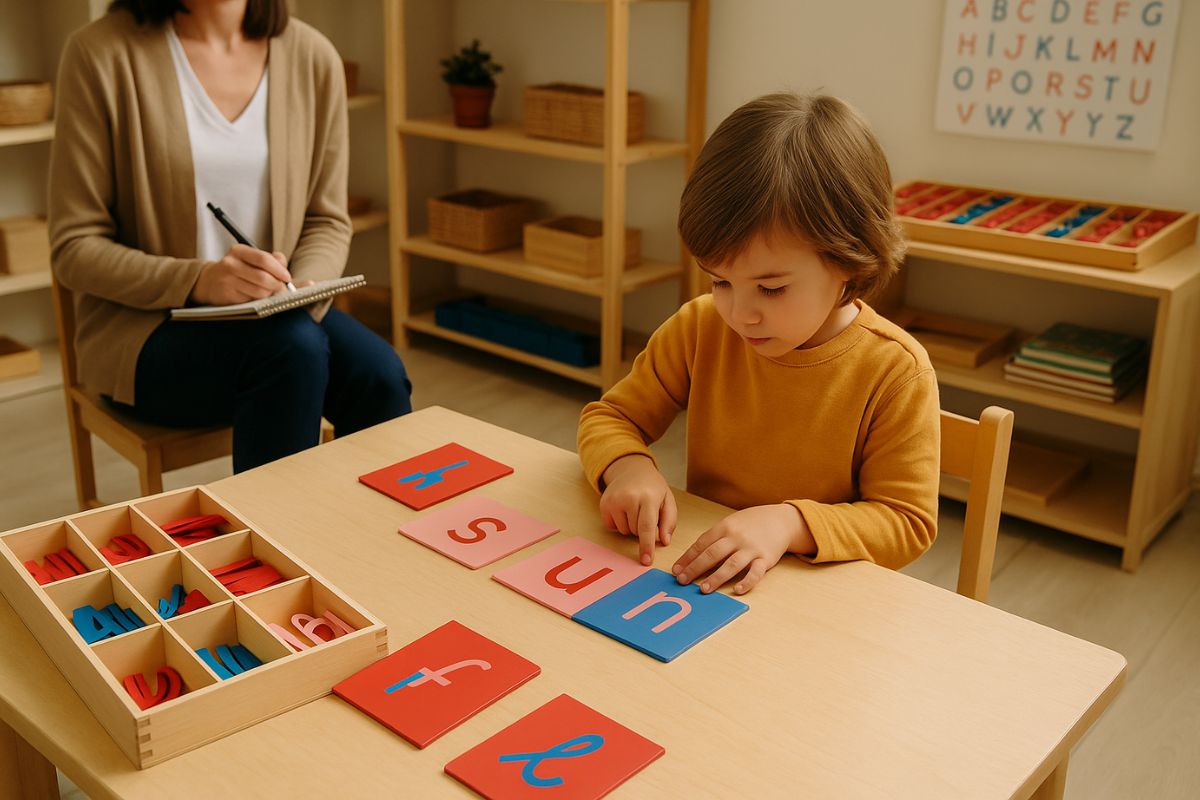Children don’t start reading just by memorizing letters. They build language from the ground up—by listening, moving, speaking, and touching. The Montessori method understands this. It doesn’t rush the process. Instead, it carefully prepares the child’s environment and experiences, so reading and writing grow naturally, with joy and confidence. For […]
Read More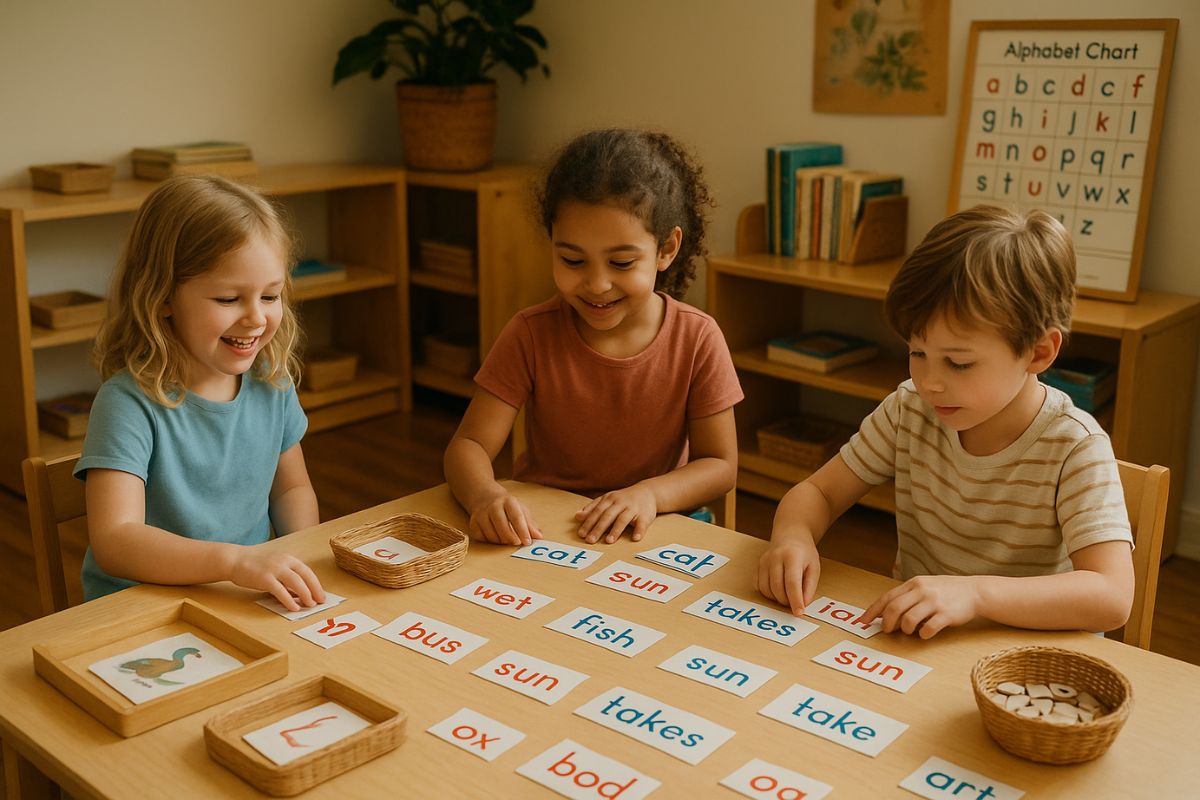
Creative Language Play with Random Words
Children absorb language with a sense of wonder. They don’t just learn vocabulary—they invent, imagine, and twist words in playful ways. In a Montessori environment, this natural tendency toward language exploration is respected and encouraged. When children are given space to play with language, even through random or silly word […]
Read More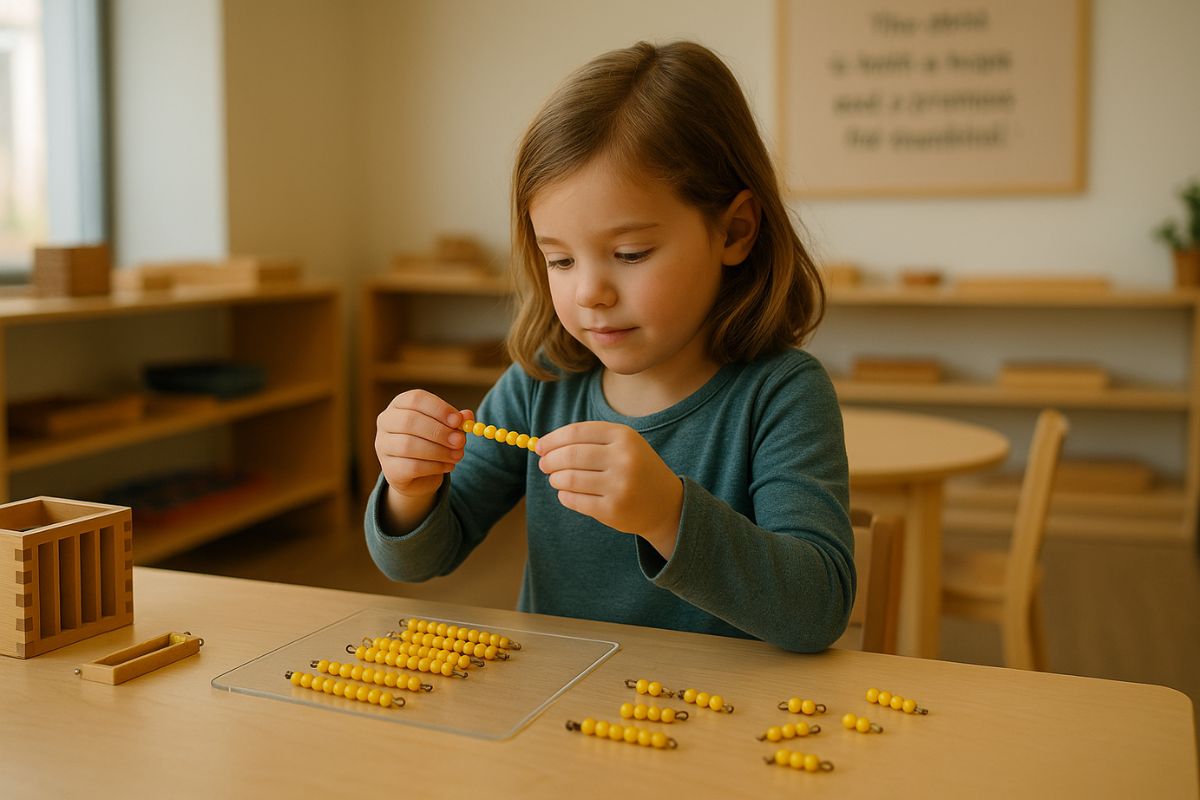
How Montessori Encourages a Growth Mindset
Children are natural learners. They explore, question, and try again when things don’t work the first time. This drive is not about competition. It’s about curiosity and effort. In a Montessori setting, this instinct is protected and supported—leading children to believe they can grow their abilities through experience, reflection, and […]
Read More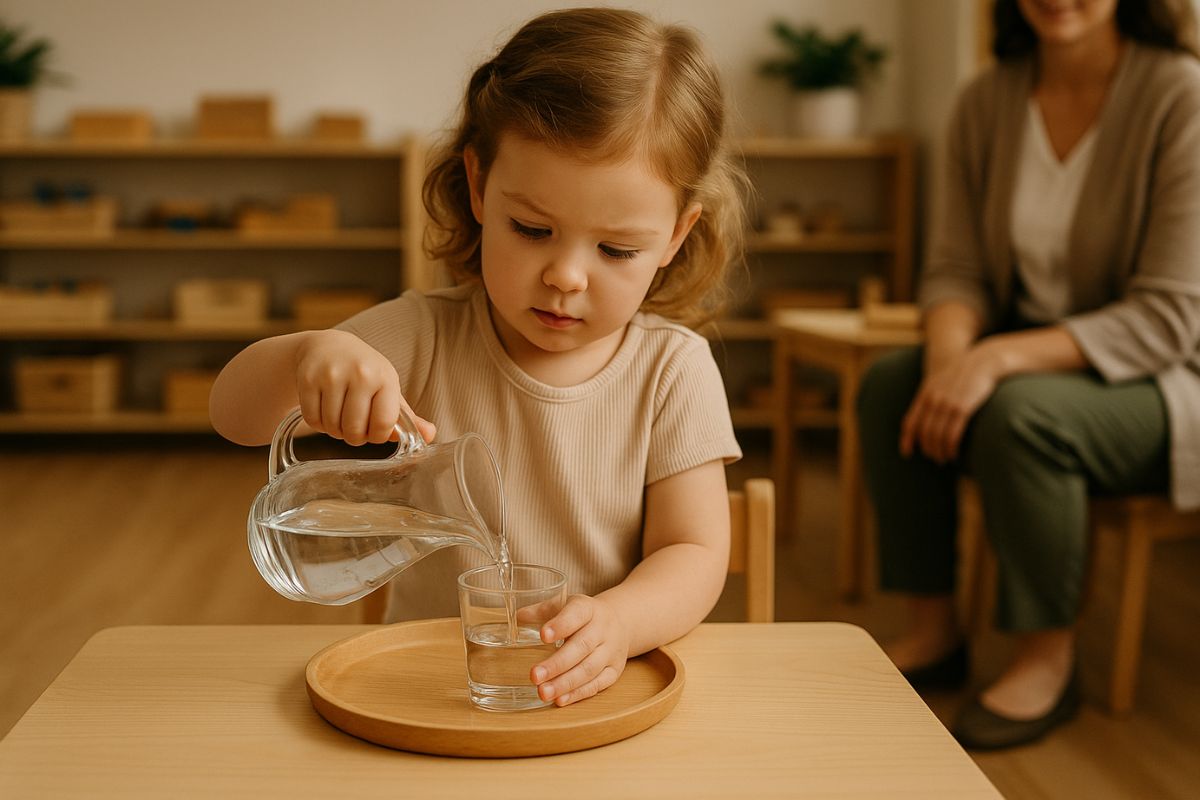
How to Introduce Practical Life Activities in Montessori
Young children want to do what adults do. They watch closely, copy movements, and try to take part in everyday life. In the Montessori approach, this natural interest is supported through a key area of the classroom called Practical Life. These activities help children learn independence, care for their environment, […]
Read More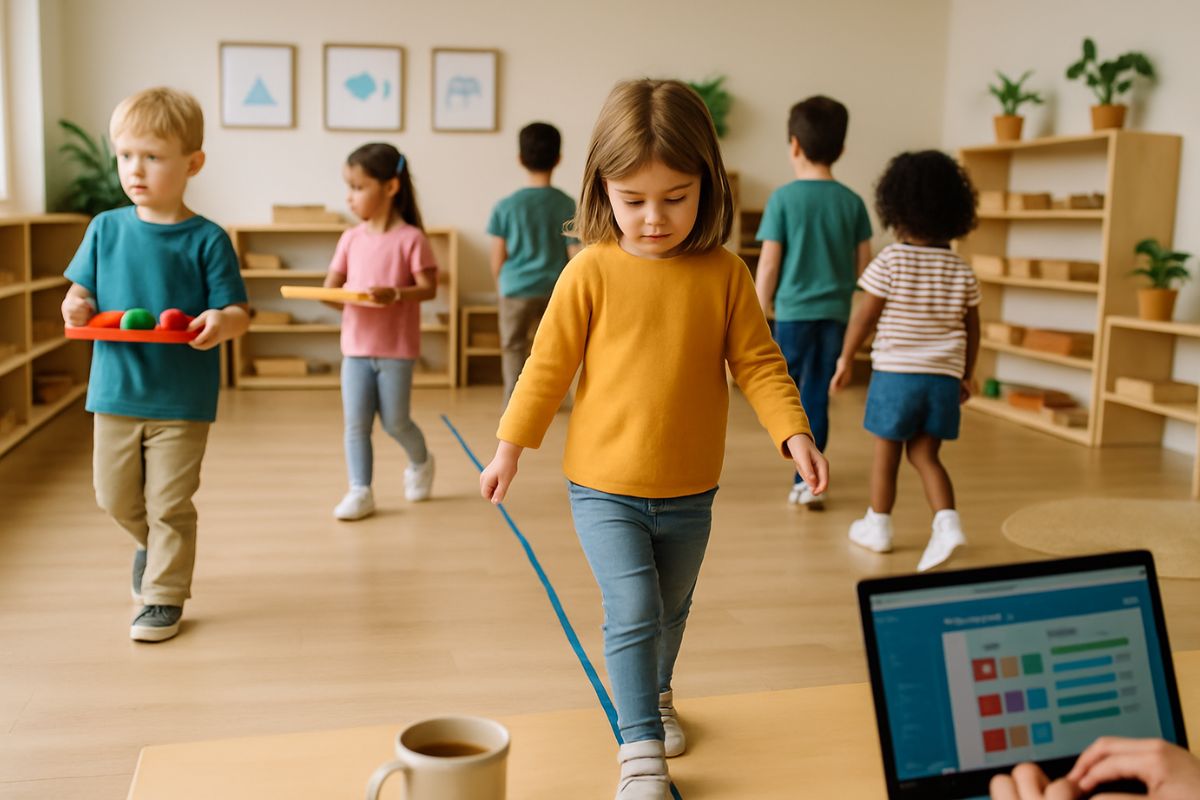
The Role of Movement in Early Learning According to Montessori
Children learn through their whole bodies. Long before they speak in full sentences or grasp complex ideas, they are reaching, crawling, touching, and moving their way through the world. Dr. Maria Montessori recognized that this physical activity was not a distraction from learning—it was the foundation of it. In Montessori […]
Read More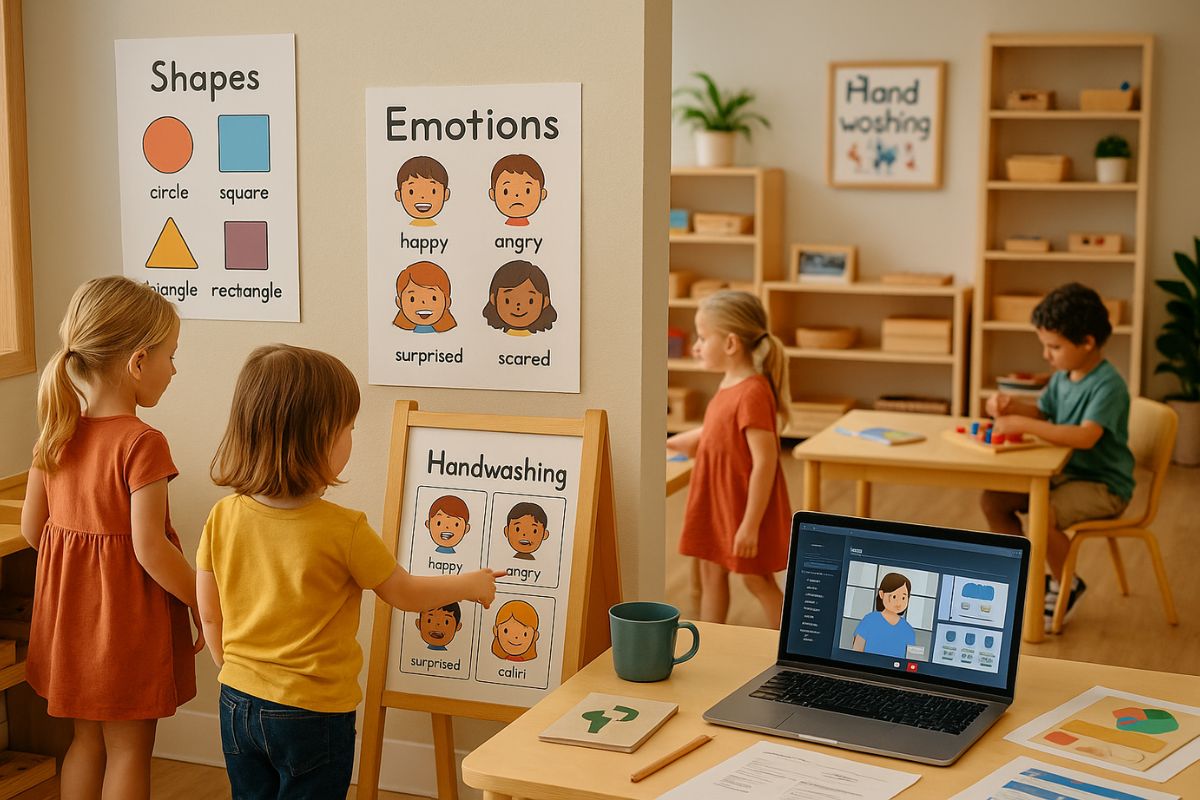
Visual Symbols for Early Learning Environments
In a classroom full of movement and questions, not every child will respond best to verbal instructions. For many young learners, especially those still developing language or navigating new routines, visual symbols offer clarity, comfort, and independence. These simple tools—icons like smiley, images, or color cues—can make a big difference […]
Read More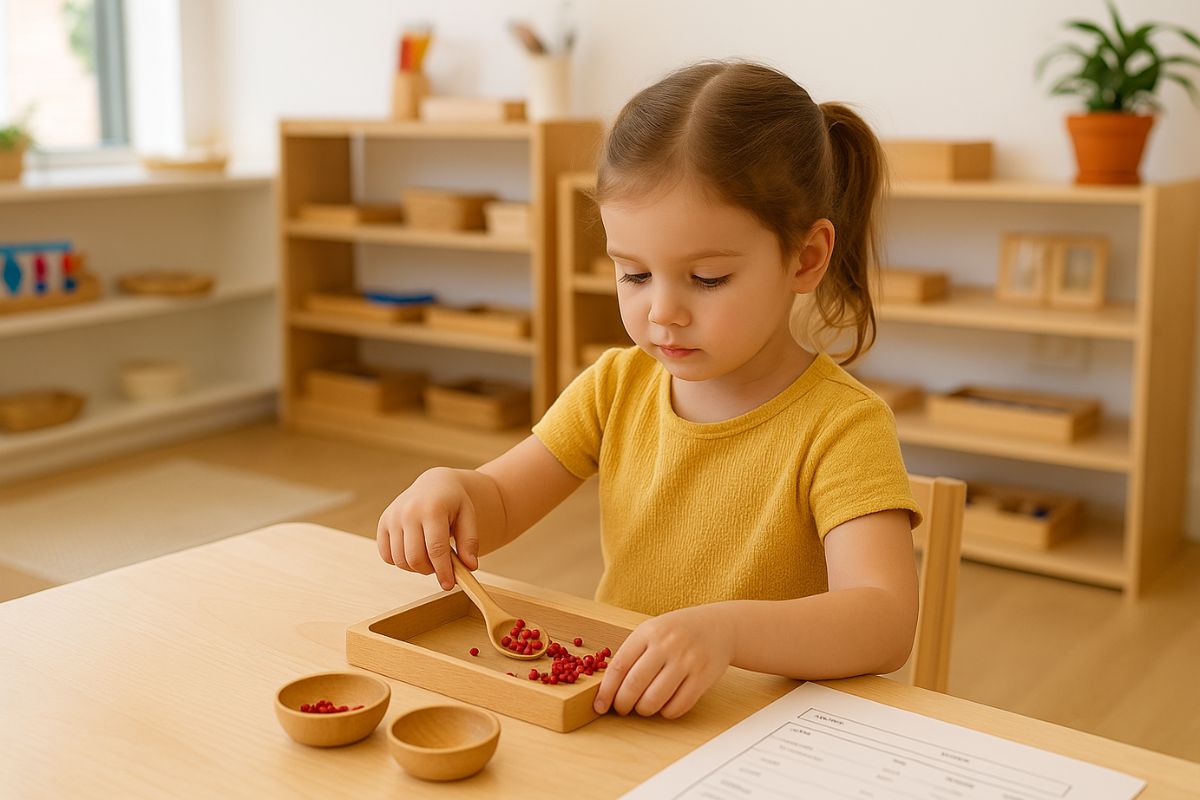
The Role of Independence in Montessori Education
Step into a Montessori classroom, and one of the first things you’ll notice is the quiet confidence of the children. They’re not waiting for instructions. They’re not lined up for the next activity. Instead, they’re choosing their own work, moving freely, and engaging deeply—all without needing constant adult direction. This […]
Read More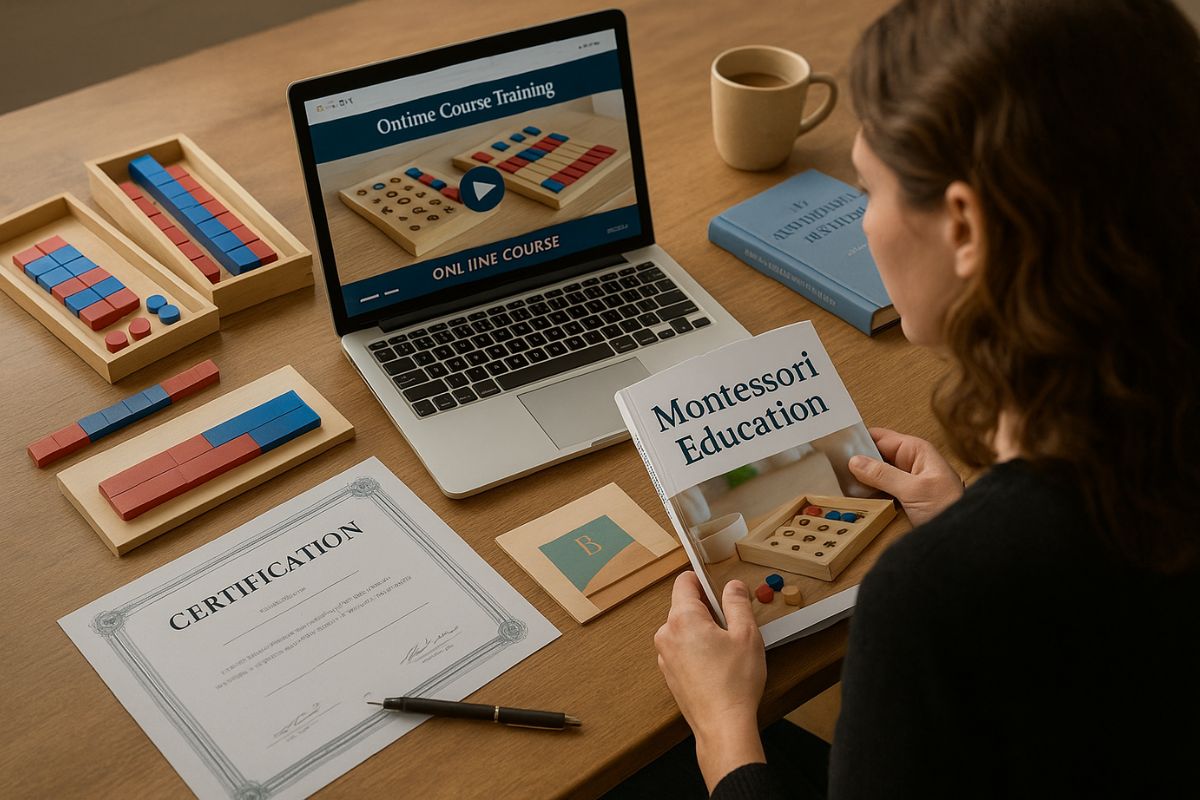
Overview of Certifications and Programs for Aspiring Montessori Educators
Choosing to become a Montessori educator is more than a career move. It’s a calling to nurture curiosity, independence, and lifelong learning in children. But before stepping into the classroom, many aspiring educators find themselves overwhelmed by one big question—how do you get trained? Montessori teaching is not just about […]
Read More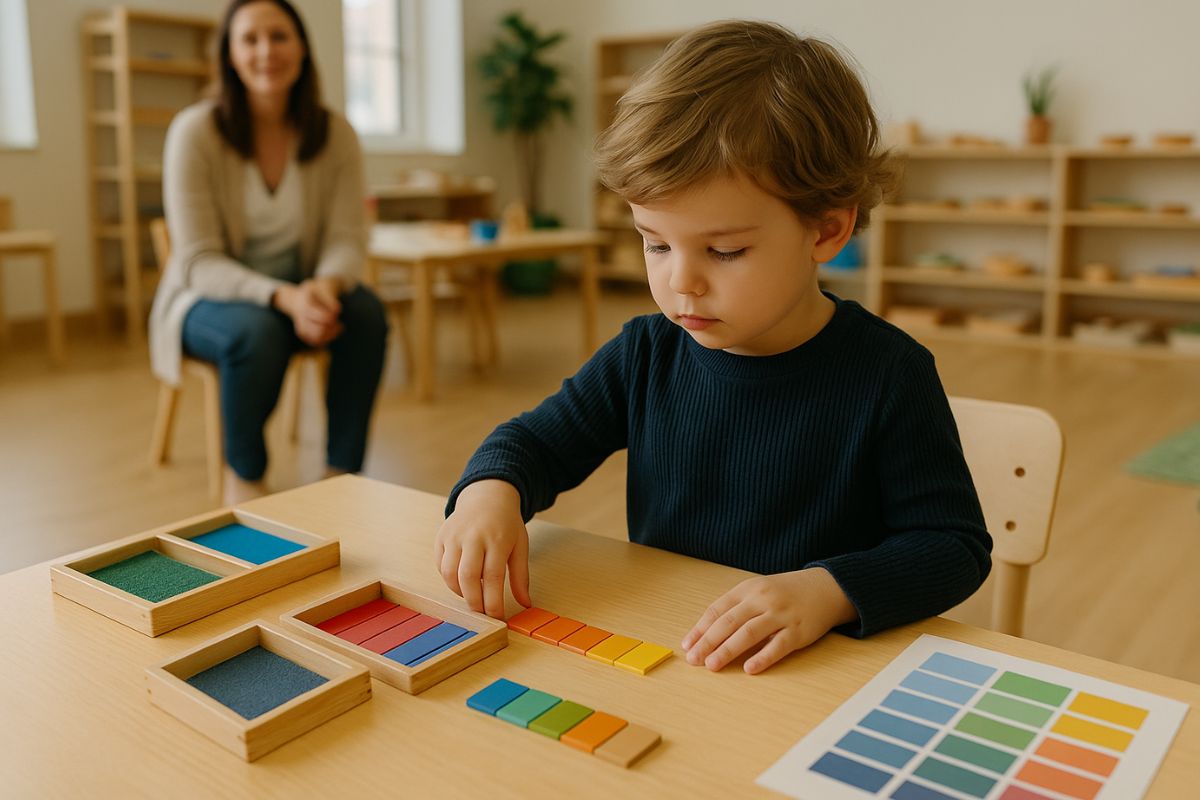
How Sensory Learning in Montessori Affects Cognitive Growth
Walk into a Montessori classroom and you’ll likely notice something different right away. Children aren’t lined up in desks. There’s movement. There’s calm. And most importantly, there’s touch—real, purposeful engagement with the physical world. From pouring water to tracing sandpaper letters, Montessori children are using their senses to build knowledge. […]
Read More
Building Numeracy Skills with Interactive Calculators
Math is more than just numbers—it’s a way of thinking, solving problems, and making sense of the world. For children, especially in early education, learning math should be engaging, hands-on, and meaningful. Montessori educators have long understood this and have used tactile tools to teach math concepts in ways that […]
Read More